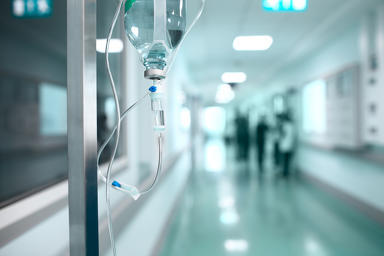 Are You Being Treated with Chemotherapy for Cancer?
Are You Being Treated with Chemotherapy for Cancer?
While chemotherapy helps treat cancer, it can also cause side effects. Some of these problems affect the mouth and could cause you to delay or stop treatment - but there are ways to help decrease these problems so you’ll get the most from your cancer treatment. To help prevent serious problems, see a dentist at least two weeks before starting chemotherapy.
How Does Chemotherapy Affect the Mouth?
Chemotherapy is the use of drugs to treat cancer and other diseases. These drugs kill cancer cells, but they may also harm normal cells, including cells in the mouth. Side effects include problems with your teeth and gums; the soft, moist lining of your mouth; and the glands that make saliva, as well as an increased likelihood of cold sores and other mouth infections.
It’s Important to Know Side Effects in the Mouth Can be Serious
- The side effects can be painful and make it hard to eat, talk, and swallow.
- You are more likely to get an infection, which can be dangerous, when you are receiving treatment.
- If the side effects are bad, you may not be able to keep up with your cancer treatment. Your doctor may need to cut back on your treatment or may even stop it.
What Mouth Problems Does Chemotherapy Cause?
The problems depend on the chemotherapy drugs and how your body reacts to them. You may have these problems only during treatment or for a short time after treatment ends.
- Painful mouth and gums
- Dry mouth
- Higher risk of cavities
- Burning, peeling, or swelling tongue
- Infection
- Change in taste
Why Should I See a Dentist?
If you go to the dentist before chemotherapy begins, you can help prevent serious mouth problems. Side effects often happen because a person’s mouth is not healthy before chemotherapy starts. Not all mouth problems can be avoided but the fewer side effects you have, the more likely you will stay on your cancer treatment schedule. It’s important for your dentist and oncologist to talk to each other about your cancer treatment. Be sure to give your dentist your oncologist’s phone number.
When Should I See a Dentist?
You need to see the dentist at least two weeks before your chemotherapy begins. If you have already started chemotherapy and didn’t go to a dentist, see one as soon as possible. You should also see a dentist as recommended or needed during and after treatment.
What Will the Dentist and Dental Hygienist Do?
- Check your teeth and gums.
- Take X-rays if necessary.
- Take care of mouth problems - especially infected teeth which may cause problems later.
- Show you how to take care of your mouth to prevent side effects.
What Can I Do To Keep My Mouth Healthy?
See a dentist before you start cancer treatment. Ask about whether you may need artificial saliva, fluoride, and/or other rinses. Once your treatment starts, look in your mouth every day for sores or other changes. These tips can help prevent and treat a sore mouth.
LEARN MORE about your oral care during cancer treatments.
Resource: Delta Dental


 Are You Being Treated with Chemotherapy for Cancer?
Are You Being Treated with Chemotherapy for Cancer?